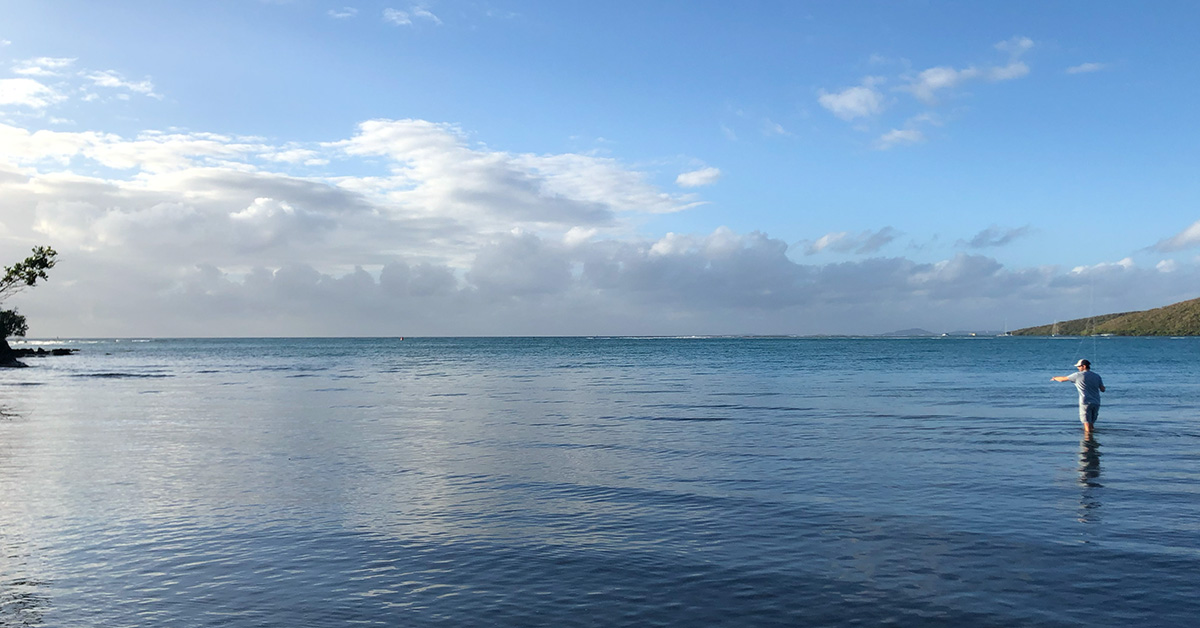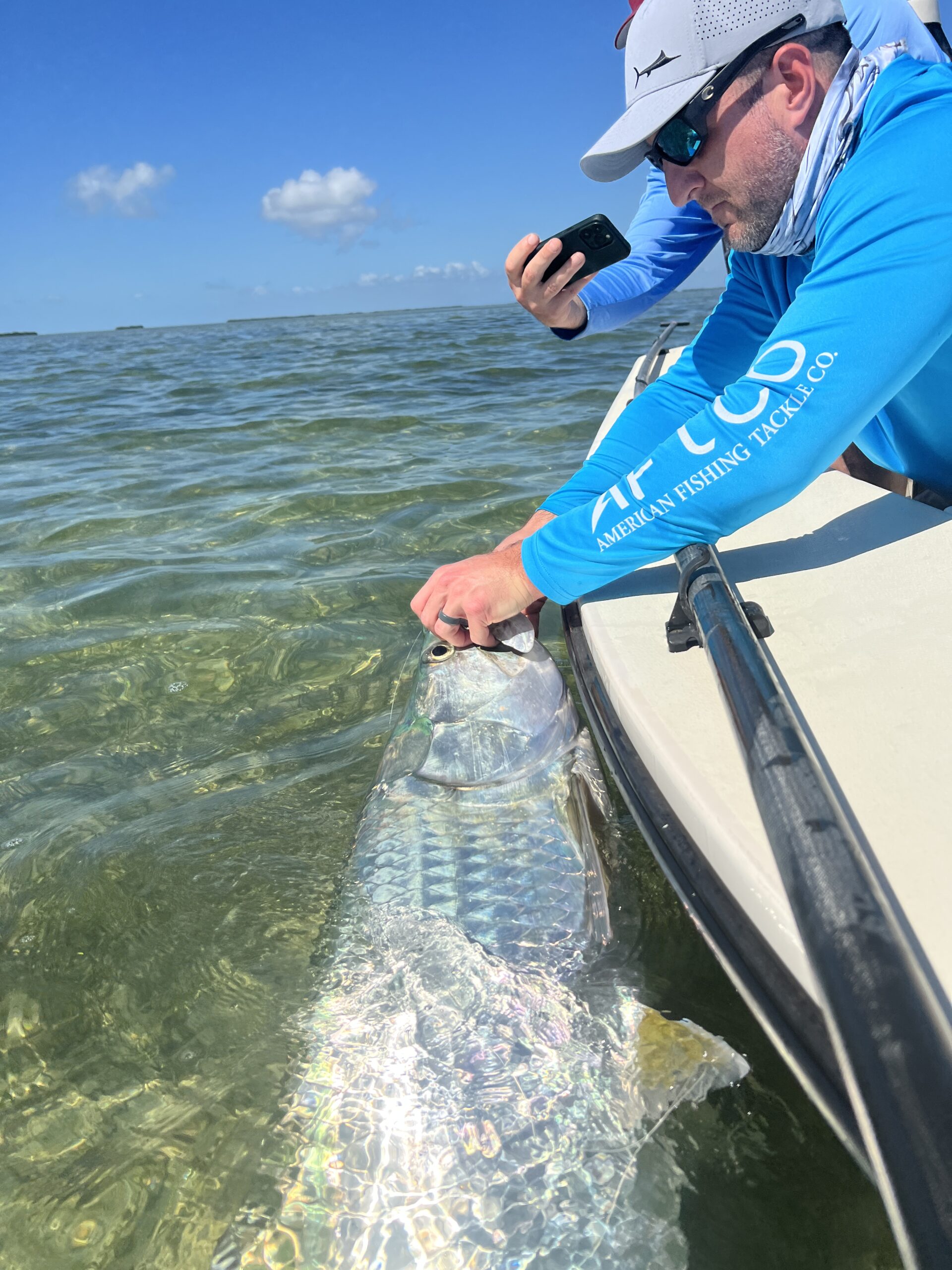Saltwater fly fishing is a challenging and rewarding sport that has been enjoyed by anglers for centuries. The history of saltwater fly fishing is a long and storied one, full of innovation, determination, and a deep connection to the sea.
Origins in Freshwater
The history of saltwater fly fishing begins with its freshwater counterpart. Fly fishing dates back to ancient times, with records of early fly fishing techniques originating in Macedonia and the Roman Empire. These early forms of fly fishing primarily targeted freshwater species, as saltwater environments presented unique challenges.
The Transition to Saltwater
The transition to saltwater fly fishing took time and experimentation. Early saltwater fly fishing pioneers faced the daunting task of adapting their freshwater techniques to the unforgiving marine environment. As the sport gained popularity in the late 19th and early 20th centuries, anglers began exploring the coastal waters in pursuit of saltwater species like tarpon, bonefish, and striped bass.
Notable Historical Figures
Several key figures played pivotal roles in the development and popularization of saltwater fly fishing. One such figure is Zane Grey, a renowned author and angler who documented his fishing adventures extensively. Grey’s writings helped spread the allure of saltwater fly fishing to a broader audience, captivating readers with tales of epic battles against mighty gamefish.
In the early 20th century, Charles Ritz, a French hotelier and angler, contributed significantly to the sport’s growth. Ritz introduced the concept of lightweight tackle and innovative fly patterns designed specifically for saltwater species, revolutionizing saltwater fly fishing techniques.
World War II and After
The development of saltwater fly fishing hit a temporary pause during World War II, as resources were redirected to the war effort. However, after the war, the sport experienced a resurgence. Returning soldiers, inspired by their wartime experiences, began exploring saltwater fly fishing, leading to increased interest and innovation.
Technological Advancements
The 20th century saw significant technological advancements that transformed saltwater fly fishing. Modern materials such as fiberglass and graphite revolutionized rod and reel construction, making equipment lighter, more durable, and more efficient. These advancements allowed anglers to cast further and battle larger saltwater species with greater ease.
Global Expansion
As the popularity of saltwater fly fishing grew, enthusiasts began to explore new horizons. Iconic saltwater destinations like the Florida Keys, Bahamas, and the Gulf of Mexico became hotspots for anglers seeking trophy catches. The pursuit of exotic species like permit, sailfish, and marlin led to an expansion of the sport’s geographic reach.
Conservation and Ethical Angling
As saltwater fly fishing continued to evolve, anglers recognized the importance of responsible and ethical practices. Conservation efforts gained prominence, with organizations dedicated to preserving fragile marine ecosystems and protecting the species we pursue. Catch-and-release practices became the norm, ensuring the sustainability of saltwater fisheries for future generations.
Modern-Day Saltwater Fly Fishing
Today, saltwater fly fishing stands as a thriving global sport, blending tradition with innovation. Anglers have access to a wide range of specialized equipment, including saltwater-specific fly lines, reels with advanced drag systems, and fly patterns designed for every imaginable saltwater species. Here are some people that had tremendous influence on modern-day saltwater fly fishing as we know it:
- Lefty Kreh. Kreh is considered one of the most influential fly anglers of all time. He is known for his innovative fly patterns and his passion for teaching others about fly fishing. He has written over 40 books on fly fishing and has appeared in numerous fishing magazines and television shows.
- Stu Apte. Apte is a world-renowned saltwater fly fishing guide and author. He is known for his expertise in catching tarpon and bonefish. He has written several books on saltwater fly fishing, including “Saltwater Fly Fishing: The Complete Guide” and “Tarpon: The Complete Guide.”
- Bob Clouser. Clouser is a fly tier and author who is known for his innovative fly patterns, including the Clouser Minnow and the Clouser Deep Minnow. These patterns are popular for catching a variety of saltwater species, including striped bass, bluefish, and false albacore.
- Jim Lepage. Lepage is a fly fishing guide and author who is known for his expertise in catching permit. He has written several books on permit fishing, including “Permit: The Complete Guide” and “Permit: The Ultimate Guide.”
- Joan Wulff. Wulff is a fly fishing pioneer who is known for her innovative fly patterns and her passion for teaching others about fly fishing. She is the author of several books on fly fishing, including “Fly Fishing for Women” and “Fly Fishing: A Woman’s Guide.”
The sport continues to attract anglers of all skill levels, from novices to seasoned veterans. Saltwater fly fishing tournaments, lodges, and guide services offer unique experiences for enthusiasts to hone their skills and chase their dream catches.
The history of saltwater fly fishing is a testament to human adaptability, passion for the outdoors, and the desire to connect with the natural world. From its freshwater origins to the modern pursuit of trophy gamefish, this sport has a rich and storied history that continues to evolve.
As you foray into the world of saltwater fly fishing, remember the pioneering spirit of those who came before you. The history of saltwater fly fishing is a legacy of adventure, innovation, and respect for the marine environment. Whether you’re a seasoned saltwater angler or just beginning your journey, this sport offers a lifetime of exploration and discovery on the open water. Have fun!


Leave a Reply
You must be logged in to post a comment.